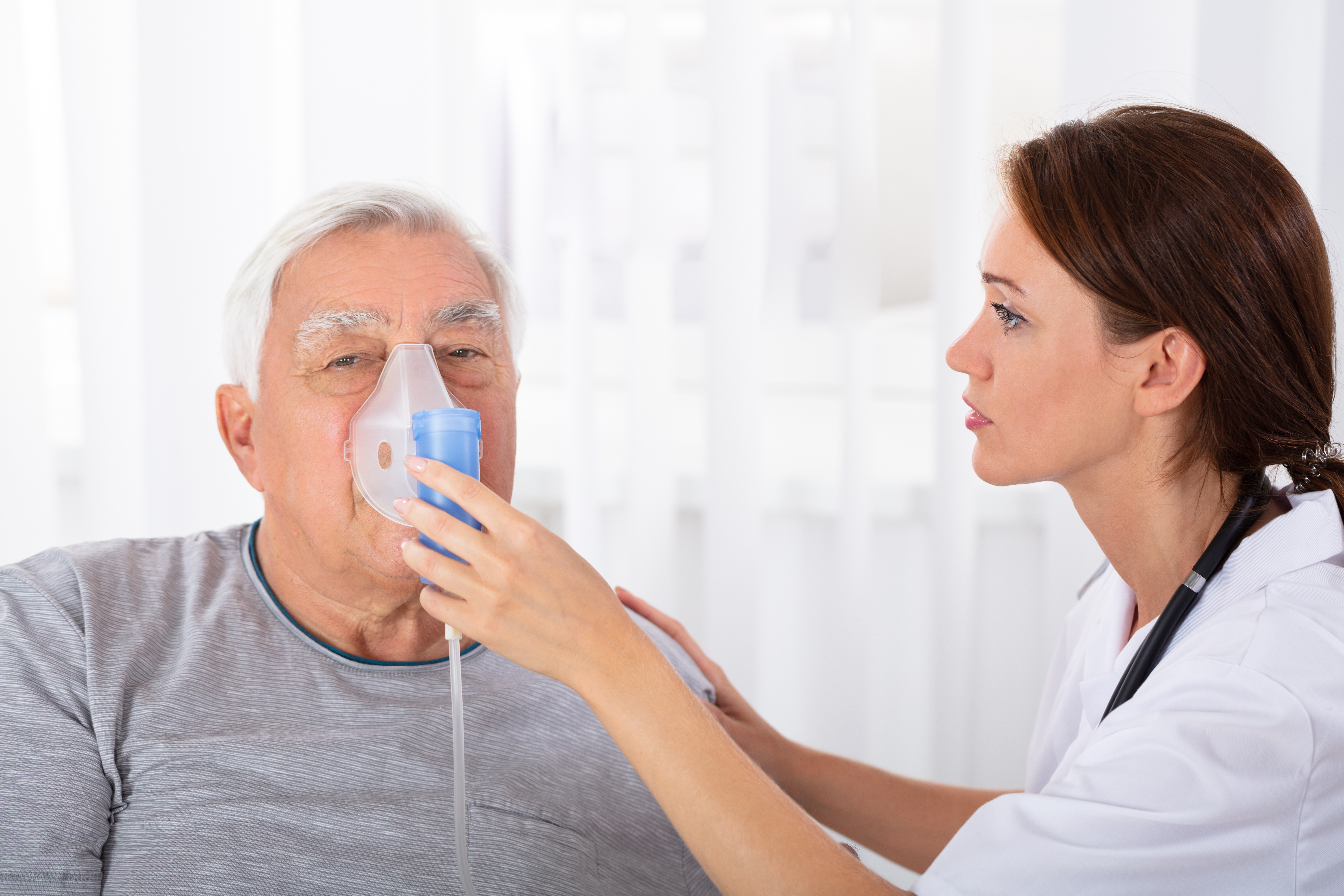Chronic obstructive pulmonary disease (COPD) is a chronic inflammatory lung disease that causes obstructed airflow from the lungs. Unfortunately, COPD is the third leading cause of death by disease in the United States, with West Virginia’s population leading the pack in adults diagnosed with COPD at 13.6 percent.
COPD causes long-term disability because of the symptoms it comes with, as well as an early death for many if not diagnosed early enough. Read on to learn more about COPD, symptoms of end-stage COPD, when hospice care is needed and the benefits of hospice.
CHRONIC OBSTRUCTIVE PULMONARY DISEASE
Chronic obstructive pulmonary disease is a general term used to describe progressive lung diseases including emphysema, chronic bronchitis and refractory (non-reversible) asthma, and is characterized by an increase in breathlessness.
- Emphysema: With emphysema, the thin, delicate air sacs (alveoli) in your lungs are damaged. The walls of the damaged air sacs become stretched out and your lungs get bigger, making it harder to move air in and out. Old air gets trapped in the air sacs and there is little or no room for new air to go. In emphysema, it is harder to get oxygen in and carbon dioxide out.
- Chronic Bronchitis: Chronic bronchitis is an inflammation of the breathing tubes (bronchial airways) inside your lungs. Tiny hair-like structures (cilia) line your airways and sweep mucus up, keeping your airways clean. When cilia are damaged, they can’t do this, and it becomes harder for you to cough up mucus. This can cause your airways to become swollen and clogged. These changes limit airflow in and out of your lungs, making it harder to breathe.
- Refractory (non-reversible) Asthma: This is a type of asthma that does not respond to usual asthma medications. In an asthma attack, bronchial airways tighten up and swell. Medications can usually reverse an asthma attack, opening the airways and returning them to how they were before the asthma attack; however, in refractory asthma, medications can’t reverse the tightening and swelling of the airways.
COPD can be caused by smoking, environmental factors and in rare cases, Alpha-1 deficiency.
SIGNS AND SYMPTOMS OF END-STAGE COPD

COPD symptoms often do not appear until significant lung disease has occurred, and they usually worsen over time. Early signs of COPD can include:
- Shortness of breath, especially during physical activity
- Wheezing
- Chest tightness
- Having to clear your throat first thing in the morning due to excess mucus in your lungs
- Lack of energy
- Frequent coughing
- Decrease in activity
Symptoms of end-stage COPD could include:
- Severe shortness of breath, even at rest
- Medication failure
- Increased visits to the hospital for lung infections or lung failure
- Pulmonary hypertension
- Tachycardia (accelerated heart rate)
- Weight loss
COPD TREATMENT
There is no cure for COPD; however, there are many things that doctors can do to relieve symptoms and keep the disease from getting worse if caught early. Treatment for early-stage COPD could include medication, oxygen therapy or surgery.
If you have end-stage COPD and are no longer responding to medications or surgeries, you may want to consider hospice.
HOW CAN WV CARING HELP | HOSPICE CARE
Exploring the option of hospice early can give individuals the opportunity to talk with their medical provider, loved ones and hospice care provider about their end-of-life care wishes. WV Caring provides treatment for your loved one at home or wherever they call home. COPD patients receiving hospice can expect their symptoms – shortness of breath, anxiety, fluid retention and other issues improved, fewer trips to the doctor’s office, fewer trips to the emergency room and inpatient stays at the hospital. WV Caring also provides additional medical care, education and emotional support to the patient and their loved ones.
Our staff will assist individuals in achieving the best possible quality of life by reducing the physical and emotional burden of a progressive illness. Our team will work with your medical team to provide a consistent plan for care based on the goals of the individual.
Since 1983, West Virginia Caring has provided comprehensive pain and symptom management, as well as emotional and spiritual support. Our goal is for our patients and family to spend valuable time together for as long as possible.
If you or a loved one has COPD and needs care, call us at 1-866-656-9790.
